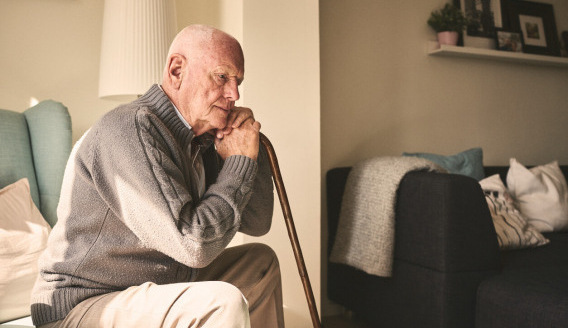Mesothelioma and Loneliness: Finding Connection and Support

Mesothelioma patients and caregivers living with this rare cancer can feel isolated while experiencing symptoms and during treatments that can cause side effects, such as fatigue. As rates of loneliness increase in society as a whole, the stress of limited social interaction can be especially difficult for people with mesothelioma.
Last week U.S. Surgeon General Dr. Vivek Murthy released a health advisory and plan – Our Epidemic of Loneliness and Isolation – to address trends in social connection and health outcomes. Studies show growing numbers of people in the U.S. are experiencing social isolation and feelings of loneliness.
Loneliness is the emotional distress one feels when there’s a gap between our need for social connectedness and the level of closeness and connection we’re actually experiencing.
The Impact of Loneliness on Mesothelioma Patients
Research indicates that loneliness can contribute to or exacerbate many medical and mental health conditions, which is a particular concern for those with cancer. Mesothelioma patients and caregivers are at increased risk of experiencing loneliness.
Mesothelioma is a very rare type of cancer with about 3,000 new cases diagnosed each year in the U.S. The mesothelioma patients I speak with often express that they find it challenging to find other survivors to connect with who are going through the same experiences.
The COVID pandemic required us to isolate ourselves physically for survival and we did see a significant increase in depression and anxiety during lockdown periods. With continuing concerns for health and safety with new variants, some still find virtual options more comfortable.
With mesothelioma patients spread across the country, virtual groups can also help people connect. Since the beginning of civilization, we’ve lived and worked together to build communities. Humans need contact with each other to survive and thrive and virtual options can help meet that need.
The Benefits of Connecting with Mesothelioma Patients
Bringing cancer patients together can be helpful both physically and emotionally according to several decades of clinical research. When mesothelioma patients and their caregivers share their experiences with one another in one-on-one or group settings, they report feeling more hopeful. This can lead to improvements in significant emotional and physical quality of life measures.
Here at The Mesothelioma Center we recognize the importance of connecting with and supporting mesothelioma patients and their caregivers. Our patient advocates are very knowledgeable about mesothelioma and are available to talk with mesothelioma patients and their caregivers about ways to cope with a mesothelioma diagnosis, key family resources and avoiding caregiver burnout.
We have offered a monthly live mesothelioma online support group for the last 10 years as a way for patients and caregivers to connect with and learn from each other. Each month we hear from group members about how grateful they are for this forum where they can give and receive support from others going through similar experiences.
We also have two Facebook groups that are only open to mesothelioma patients and caregivers. The Facebook groups provide an opportunity to connect with others at all times of the day or night.
Taking Steps to Combat Loneliness
Many hospitals and community centers offer general cancer support groups that provide people with cancer opportunities to meet in-person. Ask your oncology team or cancer treatment center if there are any in-person cancer support groups in your local area.
Loneliness may be a common human experience but it’s a problem that can be remedied when people reach out and take small steps to connect with each other every day. Connecting with fellow mesothelioma patients, either online or in-person, can greatly improve emotional well-being and quality of life.